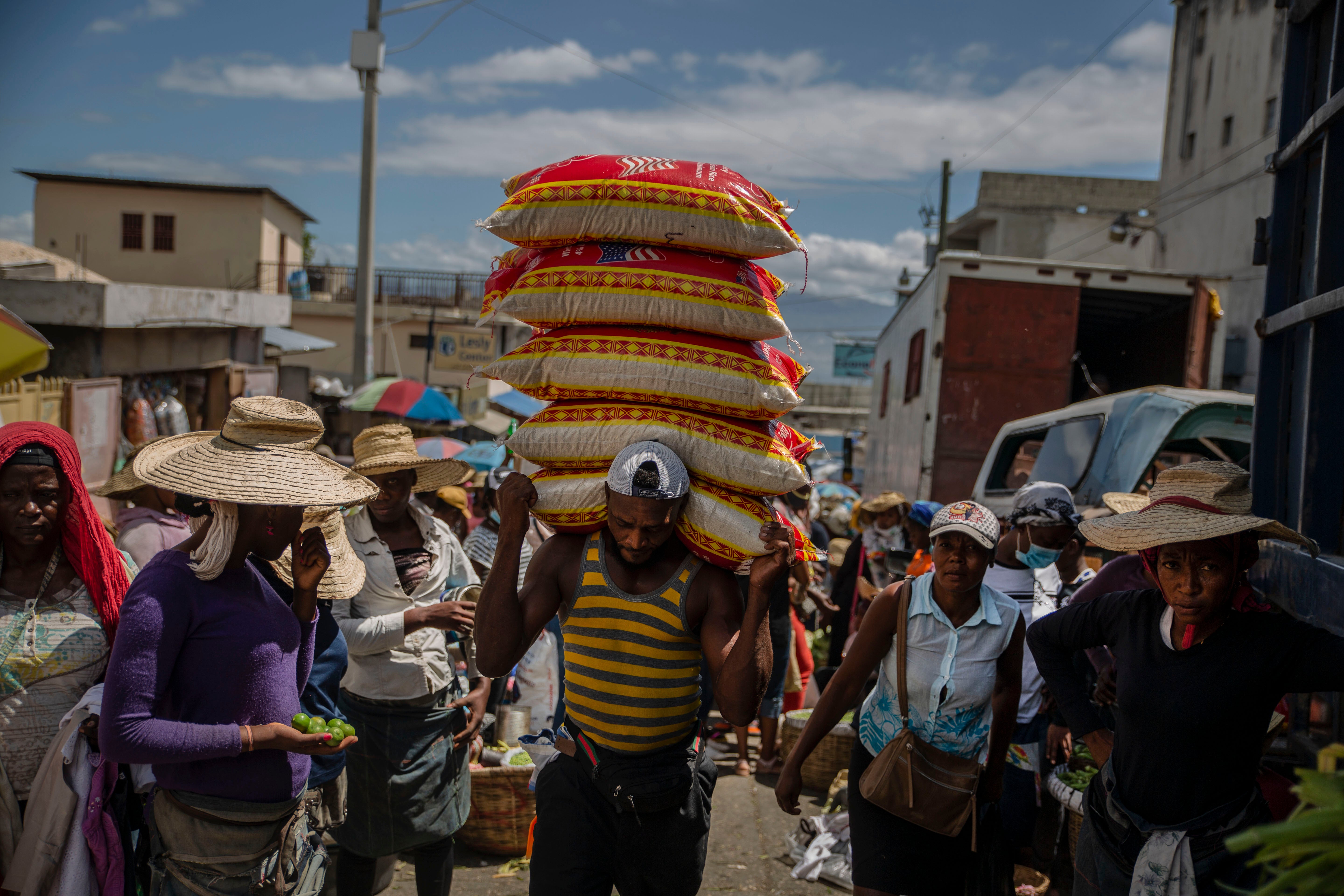Haiti awaits first vaccines amid delays, renewed promises
Officials are offering new promises that Haiti will soon receive its first vaccine as the country of more than 11 million people reels from a spike in coronavirus cases and COVID-19 deaths that have saturated hospitals

Your support helps us to tell the story
From reproductive rights to climate change to Big Tech, The Independent is on the ground when the story is developing. Whether it's investigating the financials of Elon Musk's pro-Trump PAC or producing our latest documentary, 'The A Word', which shines a light on the American women fighting for reproductive rights, we know how important it is to parse out the facts from the messaging.
At such a critical moment in US history, we need reporters on the ground. Your donation allows us to keep sending journalists to speak to both sides of the story.
The Independent is trusted by Americans across the entire political spectrum. And unlike many other quality news outlets, we choose not to lock Americans out of our reporting and analysis with paywalls. We believe quality journalism should be available to everyone, paid for by those who can afford it.
Your support makes all the difference.Officials offered new promises Thursday that Haiti would soon receive its first vaccine as the country of more than 11 million people reels from a spike in coronavirus cases and COVID-19 deaths that have saturated hospitals.
Speaking during an online meeting, Margherita Ghiselli with the Pan American Health Organization said vaccinations in Haiti would start “very soon,” though she did not say exactly when the doses would arrive.
Meanwhile, a U.N. program that delivers coronavirus vaccines to poor countries and has Haiti on its list has cut its supply forecast this year by more than 100 million doses. It wasn’t immediately clear how that might affect the delivery of vaccine to Haiti via the COVAX program, but officials were wary of the news.
Robert Barrais, with Haiti’s Ministry of Public Health, said during the meeting that hospitalizations have nearly doubled that the country is still in the pandemic’s critical phase. Officials have reported more than 17,900 confirmed coronavirus infections and 400 deaths from COVID-19, although experts say they believe those numbers are severely underreported given the lack of widespread testing.
“The fact that we don’t have vaccines yet, that explains the current situation we have in the country,” Barrais said.
Haiti was slated to receive some 756,000 doses of AstraZeneca vaccine last month as part of the U.N.’s COVAX program, but government officials were concerned about the vaccine’s potential side effects and of possibly being forced to throw away doses given the lack of infrastructure to keep them properly refrigerated.
Officials later announced that some 130,000 doses were supposed to arrive in mid-June, but the shipment was delayed for unknown reasons.
Even if the doses do arrive, officials worry they still have to persuade thousands of Haitians to get inoculated amid widespread mistrust of the vaccines and of health authorities.
During Thursday’s meeting, Ronald Jean-Jacques, a professor at Haiti’s State University, shared a survey in which he interviewed more than 5,300 Haitians. More than 60% said they would not take the vaccine, while an additional 10% said they had not even heard of a coronavirus vaccine, highlighting warnings by international agencies that stronger and more widespread educational campaigns are needed.
“We're always going to have people who don't want the vaccine,” said David Fitter, an official with the U.S. Centers for Disease Control and Prevention.
Not everyone is concerned.
Marco Jean-Pierre, an industrial mechanic, said he would take the vaccine if it would help him live longer. He added that he believes rumors that the vaccines have supposedly arrived and that only government officials and Haiti’s elite have received doses.
Jean-Pierre said he lamented living in a country where nothing is guaranteed.
“If I have the opportunity to have a life somewhere else, that’s what I would do,” he said. “Take my kid, and goodbye, Haiti.”
___
Associated Press writer Evens Sanon in Port-au-Prince Haiti contributed to this report.